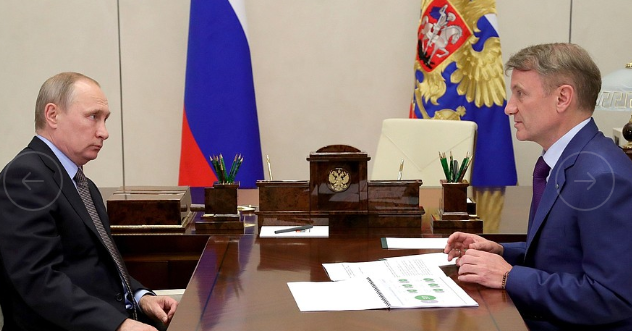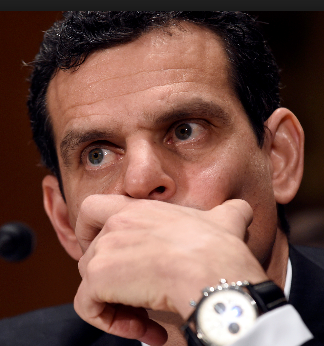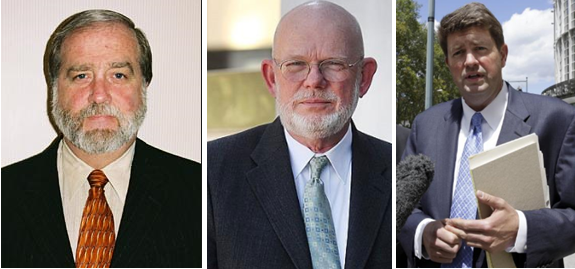By John Helmer, Moscow
A new group of US lawyers has advertised its services for suing the Russian state bank Sberbank, claiming they will earn large cash settlements for families of those killed when the Malaysia Airlines Flight MH17 was shot down in eastern Ukraine on July 17, 2014. The law firm is known as Motley Rice, headquartered in South Carolina, and the lawyer leading the advertisement to sue is Michael Elsner (lead image, top).
Motley Rice claims to be a specialist in aircraft crash cases and aviation liability, and two other lawyers in the firm, Mary Schiavo and James Brauchle, have advertised their expertise on the MH17 case in the US press. But they are keeping their pitch for a US court attack on Sberbank secret.
Motley Rice says on the firm’s website “we work to help aviation disaster survivors and victims’ families, as well as victims of passenger rights violations. Our aviation attorneys have handled a wide variety of aviation cases, representing plane crash victims, both passenger and crew, from the United States and abroad.”
Heading their aviation litigation section, the company says, are a former US Government transportation agency inspector, Mary Schiavo, and a former US Air Force navigator, James Brauchle. They claim credit for running dozens of aviation lawsuits, but the firm’s listings do not mention MH17.
Schiavo and Brauchle do claim expertise for talking to the press about MH17. On July 18, 2014, the day after the crash, Brauchle told the CNN television network he believed the aircraft had been shot down by “separatists”, but since they had no legal status as a government, Brauchle said there would be “difficulty” suing them. On the other hand, prompted by CNN to say if the victims’ families could sue Russia, Brauchle claimed that might be possible if the victims’ families were “in the US”. He gave no particulars.
Altogether, 298 passengers and crew members of MH17 were killed; 189 of them Dutch; 44 Malaysian; 27 Australian; 12 Indonesian; 9 British; 4 German and several others. One US citizen lost his life on MH17, and he was a dual US-Dutch national.
Last week Brauchle was asked to say if he, Schiavo, and Motley Rice have been mandated to commence a lawsuit in a US jurisdiction against the Russian state bank, Sberbank – “if so, can you provide details of the court jurisdiction; the court docket to date; and your claim’s rationale for Sberbank as target?” Brauchle replied: “the attorney handling MH-17 matters is Michael Elsner.”
On September 27, Elsner appeared at a meeting of MH17 victim families and lawyers advertising their business at the Unicorn Meeting Center at Amersfoort, southeast of Amsterdam. The meeting was close to the Hilversun military base, where the MH17 bodies were flown from the Ukraine after the crash, and where the first autopsy and forensic investigations were undertaken by an international team. For more details of that evidence, read this.

Left: the MH17 conference at Amersfoort in September 2017. Right: pathologists at work on the MH17 remains at Hilversun in August 2014. The fuselage of the MH17 aircraft has been reassembled under military guard at the Gilze-Rijen airbase, south of Amersfoort.
The Amersfoort meeting was hosted by Dutch lawyers who have already been identified as pursuing clientele from the MH17 disaster. These include Antoinette Collignon (pictured below, left), Evert Wytema (centre), Sander de Lang (right), and Peter Langstraat. They all specialize in litigating cases of personal injury, especially from aircraft incidents.
The Dutch lawyers have so far failed to make good on claims they have given to the media of court cases they say they are preparing. They refused to answer questions about their clients, cases and courts in this report from October 6, 2015.
According to those attending the September 27 meeting, there were presentations by three Americans, and the Berlin lawyer Elmar Giemulla. Giemulla’s cases are currently before the European Court of Human Rights (ECHR), and can be followed in detail here. Giemulla is suing the Ukrainian government for negligence in failing to close the airspace above the fighting in the Donbass region, and for refusing to warn airlines of the danger of overflights at the time MH17 was shot down.
The three Americans who presented at the September meeting were Floyd Wisner (pictured below, left), Jerry Skinner (centre), and Elsner from Motley Rice (right).
Wisner has specialized in suing airlines for all forms of injury on airplanes, including bruises from air turbulence. In his attempt at a lawsuit on the MH17 crash, Wisner’s website initially identified liability of Malaysia Airlines and the Ukrainian government for “why the aircraft was flying over the dangerous airspace…specifically why the airline decided to take the route over Ukraine which other airlines had purposefully avoided despite its economic advantage”.
In 2015 Wisner launched a claim in a Chicago federal court “demanding answers from Igor Girkin [Strelkov], former commander in chief of the Donetz [sic] People’s Republic, and a named individual under US, EU and Swiss Sanctions. Girkin is a Russian national, believed to be living in Moscow.”
In an initial burst of publicity, Wisner told the court and the press “Flight 17 flew over the airspace of the area in which the aforesaid rebel army was waging its war activities and the rebel army under the command responsibility of defendant Girkin shot down the subject Boeing 777-200 aircraft… [He] ordered, aided and/or abetted this action and/or conspired with those persons who fired the missile or missiles.” Wisner also claimed to reporters that his lawsuit demand for $900 million in compensation “is not about money. It is about getting answers from Girkin and putting pressure on Russia to cooperate” with an international tribunal to bring criminal charges against those responsible.” Nothing has been reported by Wisner about the case in the past two years.
Skinner, an American national who works with an Australian law firm, has publicized several lawsuits in which he has targeted the Russian government, as well as Malaysia Airlines. Skinner’s allegations can be followed here. Like Wisner, after the first media publicity of his claims Skinner does not answer press questions, and no court has yet to rule on his allegations.
At the Amersfoort meeting with MH17 victim families, Elsner said he was offering a new court tactic which has not been attempted by the other MH17 lawyers. Instead of targeting the airline for flying into the conflict zone, the Ukrainian government for failing to close hazardous airspace, or Russian individuals for combat operations on the ground, including the firing of ground-to-air missiles, Elsner said he is proposing to sue the Russian state bank, Sberbank.
If the Dutch families will sign up as clients, Elsner said his lawsuit in a US court will be aimed at the bank for providing money to those on the ground he claims fired the missile which brought MH17 down. “The separatists needed money to finance their activities,” Elsner told the meeting. “So financiers have contributed to the attack on the MH17.” He claimed to have evidence of donation appeals from Ukrainian separatist organizations using Sberbank account numbers. He told the meeting the bank was responsible for financing terrorism in this way, and thus in violation of US laws and regulations prohibiting such financial operations.

Sberbank chief executive German Gref, right, briefs President Vladimir Putin on August 7, 2017, reporting record high profit at the bank this year, compared to a year ago. The impact of war sanctions was not referred to in the Kremlin transcript. Source: http://en.kremlin.ru/events/president/news/55313
“Sberbank is the largest Russian bank that can be blamed for funding the separatists,” Elsner claimed, “and Sberbank has a branch in the US. The goal is to target Sberbank and make it liable for the financing of terrorism.” He also urged the MH17 victim families to sign up as his clients. “The more relatives who join, the more pressure [for an out of court settlement by the bank] can be exercised,” he added, warning that if they didn’t sign, and others won a payoff, “only those signing the claim can receive damages.” If the Dutch victims already had Dutch lawyers, Elsner said, Motley Rice will work out a cooperation deal with them.
Contacted directly last week, Elsner was asked to say if, since his September appearance in The Netherlands, he and Motley Rice have been engaged by a Dutch client to sue Sberbank, and if so, what his rationale is for targeting the bank. Elsner has refused repeated requests to respond.
Elsner omitted to tell his Dutch audience that one of the US court cases he claims credit for, a lawsuit in Brooklyn, New York, against Arab Bank of Jordan for attacks by Palestinians in Israel, has been dismissed by a federal appeals court. The US Supreme Court is now considering that appeal. The legal issues and evidence not in dispute in the Arab Bank case are that the victims were either US citizens or connected to the US; that the perpetrators were clearly identified in person and in US regulations as members of the Palestinian organization Hamas; and that the bank was involved in a handful of transactions with the perpetrators. The bank and its US lawyers accused Motley Rice and its clients of pursuing cases against Palestinians in the US while preventing Palestinian-American victims of the Israeli military from doing the same.
US Treasury sanctions against Russian individuals and corporations commenced in March 2014. Sberbank was added in September 2014. According to the press release from Treasury Under Secretary David Cohen (right), the sanctions against Sberbank were intended to “demonstrate our determination to increase the costs on Russia as long as it continues to violate Ukraine’s territorial integrity and sovereignty. The United States, in close cooperation with the European Union, will impose ever-increasing sanctions that further Russia’s isolation from the global financial system unless Russia abandons its current path and genuinely works toward a negotiated diplomatic resolution to the crisis.”
Sberbank was added in September 2014. According to the press release from Treasury Under Secretary David Cohen (right), the sanctions against Sberbank were intended to “demonstrate our determination to increase the costs on Russia as long as it continues to violate Ukraine’s territorial integrity and sovereignty. The United States, in close cooperation with the European Union, will impose ever-increasing sanctions that further Russia’s isolation from the global financial system unless Russia abandons its current path and genuinely works toward a negotiated diplomatic resolution to the crisis.”
Political lobbying in Washington by the Turkish and Swiss governments has relieved banks in those countries, in which Sberbank holds significant stakes, from the application of the sanctions.
In its initial action against Sberbank of September 2014, the US Treasury prohibited US entities from engaging in “all transactions in, provision of financing for, and other dealings in new debt of longer than 30 days maturity or new equity of persons determined to be subject to this Directive, their property, or their interests in property.” Three years later, on September 29, 2017, this credit limit was cut from a month to a fortnight, prohibiting “new debt or new equity issued on or after November 28, 2017, all transactions in, provision of financing for, and other dealings in new debt of longer than 14 days maturity or new equity of persons determined to be subject to this Directive or any earlier version thereof, their property, or their interests in property.”
UK courts require that government-ordered sanctions against foreign banks should be backed by a demonstration of reason for the action, and should not be “disproportionate to any contribution which [the sanction] could rationally be expected to make to its objective.”
In the US actions against Sberbank so far, no cause-effect relationship between the bank and the Ukraine war has been announced, nor a reason for the sanction except that it “is Russia’s largest financial institution. Sberbank accounts for approximately one-quarter of Russian banking assets and one-third of its banking capital.”
The war in eastern Ukraine, and those fighting it, have not been identified in the US regulations as terrorist. Nor have the US, Dutch and Australian governments legally identified the MH17 incident as a terrorist attack; for details of the Australian Attorney-General’s report blocking that step, read this.














Leave a Reply